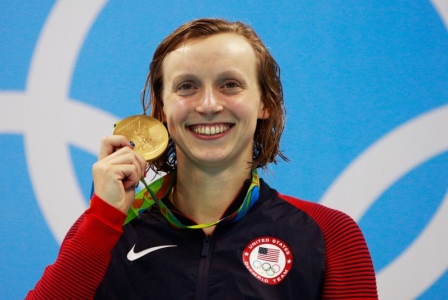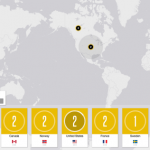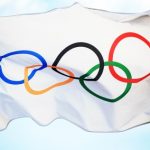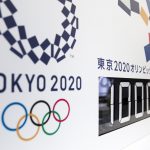Ledecky Blows Away Field as Phelps Settles for Silver in Final Individual Races of Rio Olympics
Ledecky Blows Away Field as Phelps Settles for Silver in Final Individual Races of Rio Olympics

Call it swimming’s nirvana, its Valhalla or even an aquatic Elysian fields. However you describe Friday night’s penultimate day of Olympic swimming in Rio, it wouldn’t do it justice.
Maya DiRado of the U.S. kicked off the night by snatching gold from Hungary’s Katinka Hosszu, the heavy favorite and fastest qualifier in the event, to win her second gold in her first Olympics, while Michael Phelps ended his competitive individual racing career with a three-way tie for silver and Katie Ledecky set yet another world record to defend her 800m title. And U.S. sprinters Anthony Ervin and Nathan Adrian won gold and bronze, respectively, in the 50m freestyle.
Twelve minutes into the night’s event, Michael Phelps climbed onto the blocks, bent over, and adjusted his feet on the starting platform. He stretched his arms out behind him, then relinquished them to the force of gravity to swing around and smack his back. Slap, slap, slap, three times. It’s a ritual that began when he first started swimming, and stuck with him to his last day as a competitive swimmer. The arena fell silent before the starting gun. Two lengths of the pool in what swimmers consider the most punishing stroke in their arsenal.
From above, Phelps butterfly is more like a wave than a stroke. Flowing from his outstretched arms to his arched back and his final undulating kick, it’s one continuous movement that on Friday night was also the fastest. Phelps was sixth at the turn, at 50m, and starting closing the gap with Singapore’s Joseph Schooling, who surprised many when he qualified ahead of Phelps with a stunning 50.83, the fastest time this recorded this year. Schooling bested that time with a 50.39, and Phelps fell more than 30 seconds behind to touch simultaneously with South Africa’s Chad le Clos, the silver medalist from 2012, and Hungary’s Laszlo Cseh who owned the fastest time this year before Schooling beat it in Rio. The three longtime rivals wound up splitting silver behind Schooling, 21, the Singapore-born, Florida-raised University of Texas swimmer. With the victory, Schooling won Singapore’s first Olympic gold medal and became just the third person to beat Phelps in an individual Olympic race.
Just eight minutes later, Katie Ledecky, who won all four of her races in Rio, made it five-for-five when she defended her Olympic title in the 800m freestyle. Ledecky made a statement with each lap, pulling first half a body length then a fully body and finally, by the last lap, several lengths ahead. She wasn’t racing the field but the clock, spending most of the race more than a minute and a half under her own world record pace, set earlier this year. With two laps to go, she was nearly two minutes under that pace and in the final 50m, crushed it with a final time of 8:04.79–nearly two seconds ahead of her own world record.
Ledecky’s win was the least climatic of her five races so far; this is the event she won in a stunning upset over more seasoned distance swimmers in 2012. And this distance is where she’s the most comfortable. But as she proved at last year’s world championships when she became the first swimmer to win all four freestyle distances — at 200m, 400m, 800m and 1500m — distance isn’t her only specialty. (The Olympics includes a 1,500m for men only.)
“It’s just unbelievable that someone can swim the sprint and distance races and be dominant all the way through,” says Dara Torres, a 12-time Olympic swimming medalist. Ledecky’s ability to excel at both the 200m and the 800m is akin to having Usain Bolt win both the 100m and the 5,000m. “She’s so versatile; I’ve never seen that before or heard that before,” she says.
Ledecky is only the second woman to dominate all freestyle distances at a single Games, following American Debbie Meyer in 1968. But Meyer didn’t swim the two relays that year; Ledecky earned two relay golds along with her three individual titles which ties her with Phelps for the most golds in Rio so far.
It’s only the third silver in Phelps’ career, which came a day after he became the first person to four-peat and win the same event in four consecutive Olympic when he out-touched the field that included teammate Ryan Lochte, in the 200m individual medley.
All week in Rio, Phelps has been talking about his last races as a competitive swimmer, and getting a little nostalgic about hanging up his goggles and cap. “Things started hitting me this morning,” Phelps said on Thursday after winning his 26th medal and 22nd gold in the 200m individual medley. “I only have to put on my racing suit two more times after tonight.”
That kind of history is hard to make and will be even harder to surpass. Phelps leaves swimming on his terms; he admits that in 2012, he wasn’t in the sport for the right reasons, being pulled back in to train by a sense of obligation and resignation after establishing himself as the most decorated Olympian ever. But with his four golds in Rio so far, Phelps’ legacy not just as a swimming great but as an Olympic legend will be unavoidable even if he’s not in the pool when the next Olympics come around.
Before that happens, Phelps will likely take one last dive into the pool, for the medley relay on Saturday.
And it wouldn’t be a complete surprise if he is assigned a lane at the next Games in four years. “I just don’t know if he can just stop,” his mother Debbie Phelps said in an NBC interview. Only his opponents would complain if he didn’t.
(15)












